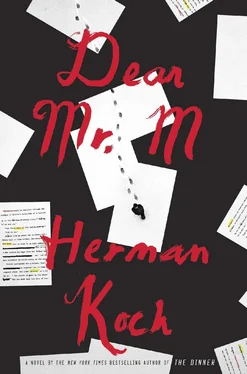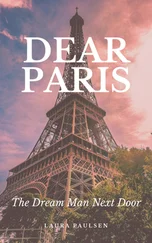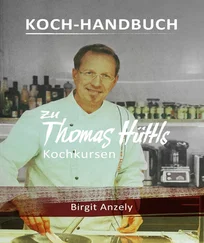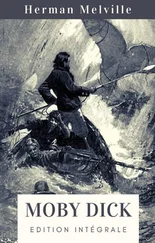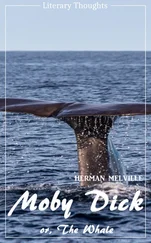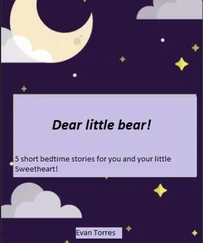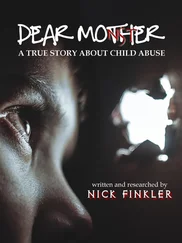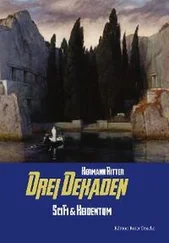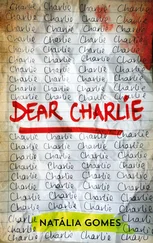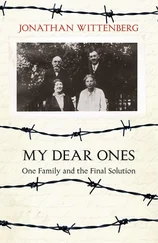He had only tried to imagine what must have happened. Back then. Forty years ago. He had never written detective novels or thrillers, but he had always enjoyed reading them. Those books brought back something of that old joy in reading, the old, carefree, avid reading: in the same way he’d devoured the books he had stolen from the shop when he was sixteen, without worrying too much about genre. In those days, all books were equally exciting, in the old-fashioned sense that you wanted to find out how they ended.
But somewhere around his eighteenth birthday — a point that coincided more or less with his earliest urges to write — he had been driven out, once and for all, from the paradise of carefree reading. From that moment on a distinction was imposed between literature and the rest: the other books. From then on literature was either good or bad. Bad literature he read with a gnashing of teeth, growling and fidgeting in his easy chair, furious in fact at such pretentiously formulated impotence. But with the good literature too, something of the original pleasure was ruined once and for all. Whenever a book was truly good — very, very good, perhaps even a work of genius, a masterpiece — he kept asking himself how the writer had done it. He would pause after each paragraph, sometimes after each sentence, and then read that paragraph and that sentence over and over before going on. Sometimes he turned the sentence into pabulum by reading it over and over so often that it finally kept as little of its original flair as a meal cooked to death and then warmed up again and again.
There was also another difference between literature and all the other books. It was, in fact, the same food from two different restaurants. On the right you had the restaurant with the Michelin stars, on the left the Burger King or McDonald’s. The point was that you didn’t always feel like nibbling at sophisticated tidbits, didn’t always feel like spearing a minuscule piece of goose liver from an otherwise as-good-as-empty plate. Sometimes you felt more like a hamburger with bacon and melted cheese and a soft, soggy bun that left the grease dripping down your chin — but that was always accompanied by a sense of guilt. A sense of guilt so overpowering that M, whenever he visited a Burger King, kept looking around skittishly to make sure he saw no one he knew. Caught red-handed! Like running into someone outside the door of a whorehouse. After reading a thriller or a detective novel, he had almost the same feeling: a great emptiness. Was that all there was? A few hours after eating that Triple Whopper with bacon and cheese he was hungry again too, as though both stomach and brain had completely repressed the memory of that guilty meal. A detective novel was a furtive visit to a whorehouse, a real book was a conquest each and every time, the woman at the hotel bar in that foreign city, the conversation that consists more of glances than of words — and then the elevator upstairs.
Along with Ana, he sometimes cast a furtive eye at detective series on TV. “The vet did it,” he would shout after ten minutes. “Wait and see, that nice veterinarian who’s helping them search for the body right now.”
“Ssh!” Ana would say. “Don’t do that, otherwise it’s no fun anymore.”
But he was always right. It took a great deal of effort to suppress a triumphant grin whenever “the nice vet” was taken into custody at last.
It was in that same way, forty years ago, that he had looked out over the fields around Terhofstede, had walked back and forth to Retranchement and then followed the canal to Sluis. He had found a room in a simple boardinghouse in Retranchement, and left on foot for the Zwin after breakfast the next day. There, atop the sea dike, he looked out over the thistle and haulm-covered flats of the inlet — it looked like it was low tide. He put himself in the position of his characters. Of Herman. Of Laura. But above all, of the history teacher. Of Jan Landzaat.
Imagine, he thought for the first time there, at that same spot, that the teacher had simply disappeared of his own free will. That he hadn’t been killed by Herman and Laura and then buried in some secret, or at least unfindable, location. He had thought about the detective series, about the most improbable yet still just barely credible scenario — about the nice veterinarian.
He had tried to imagine this same landscape when it was covered with ice and snow. The sun that was already going down by four-thirty on that day after Boxing Day, the day when Jan Landzaat and Herman left on foot together for Sluis to find a garage for his disabled vehicle. Imagine that the history teacher had been planning all along to get rid of Herman somewhere along the way; perhaps not in the literal sense of getting rid of him, not by harming him, but much simpler than that: by disappearing, by giving him the slip when he wasn’t paying attention. That he had waited patiently for such a moment to arrive, and that when Herman withdrew into the bushes along the dike to take a piss — as Herman himself had stated, as he had never stopped stating — Landzaat had seized the opportunity and slipped away quietly.
As a writer, this version of events was inconvenient for M. Inconvenient for the book he had already decided to write, even though he was still unsure which way the plot would go; it would be better if the whole hike to Sluis had been invented by Herman (and by Laura), and if the history teacher was long buried and in the ground two days after Christmas. Unfortunately, though, there was that witness, the to-this-day-unidentified witness who the papers said had seen Herman and the teacher close to the canal, albeit not in the direction of Sluis but out toward the Zwin.
After that, of course, anything could have happened; no new witnesses turned up. Herman could have murdered Jan Landzaat and then buried him at some spot in or close to the Zwin. Then he could have returned to Terhofstede and told Laura that he had “lost” the teacher.
But back then, forty years ago, as M stood on the sea dike, that version of events had suddenly seemed highly improbable. Herman would have had to do it with his bare hands; in a struggle with the healthy, full-grown Jan Landzaat he would definitely have come out on the losing end. He would have had to take him by surprise, from behind, using a stone, or some weapon he’d brought from the house — a hammer, a hatchet, something he could easily hide under his coat — to knock him out. But the more M thought about it, the less likely that seemed. It seemed more premeditated than Herman or Laura was capable of. And even though the witness had stated that he’d seen Herman and Landzaat heading toward the Zwin, that didn’t mean Herman had intentionally lured him out there in order to kill him: after all, Herman could have gotten mixed up too — he may have known the surroundings better than the teacher, but maybe he’d had a hard time getting his bearings in that white landscape.
M had walked from Terhofstede to the canal. There was a bridge there, but no signpost; on the far side of the canal the road split, one side going north toward the Zwin, the other to the south, toward Sluis. From the split in the road you still could not see Sluis, not even on a clear summer’s day: nothing, no steeple or buildings, those came only later, after the canal bent off gently and the old fortified town popped up from behind the trees. Jan Landzaat and Herman, in any event, had never reached Sluis.
Atop the sea dike M had closed his eyes and sniffed at the wind. In the distance, on the horizon, he saw sticking up into the air the cranes of what was probably a harbor. Which way would he himself have gone? he’d asked himself that afternoon.
In the police interviews with Laura and Herman, in what had leaked out about those interviews, the “friends in Paris” came up a number of times. But no one else, not Landzaat’s wife, not his colleagues or former classmates, had ever heard of such Parisian friends. Still, the history teacher had been “on his way to Paris”; at least that’s what he himself claimed — once again, according to Laura and Herman.
Читать дальше
